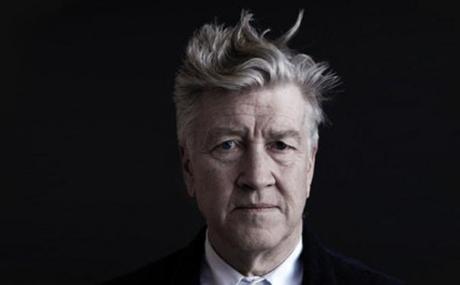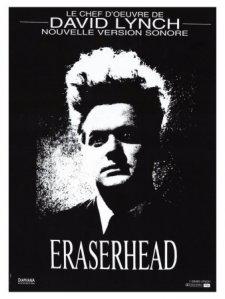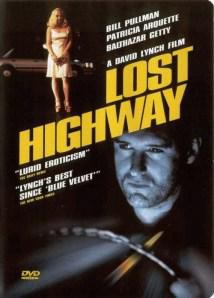After studying art alongside his good friend Jack Fisk, who has since become one of the most famous film crew members of all time, working with Lynch on many of his movies and also working as an art director with Terrence Malick and Brian De Palma, and a production designer with Malick and Paul Thomas Anderson, Lynch moved onto film. He based his first short,
Six Figures Getting Sick, on one of his paintings. It is a bizarre and dark 30-minute animation put on a loop several times and with a strangely effective and startling siren noise in the background. He followed this up with
The Alphabet, which is one of my favorite shorts of all time, and was based on a dream his wife’s neice had. The film deals with a child’s fear of education, which overwhelms her in a dark and volatile animated Hell and culminates in a shocking image of her vomiting blood. His subsequent shorts,
The Grandmother and
The Amputee, are equally as interesting but not as captivating. In 1977, his magnum opus
Eraserhead was released, after six years of work on it. Though initially it was received with disgust and confusion, it has since become a popular cult classic and “midnight movie,” among the not dissimilar work of Alejandro Jodorowsky (whom Lynch admired) and John Waters.
His next films,
The Elephant Man, Dune and
Blue Velvet, delved into the mainstream, sometimes successfully and other times failing miserably.
Dune was a flop that Lynch tried to disown, however
The Elephant Man and
Blue Velvet have become popular and great films. Each of the three showed Lynch attempting to build his surrealist style, and while it becomes prominent during moments in all three (particularly
Blue Velvet), it is not as developed as it would be in the years to come. With
Wild at Heart and the TV series
Twin Peaks, Lynch crafted a world similar to our own but lathered in his mysterious ooze of intrigue. With his film
Lost Highway, Lynch would abandon ship altogether, and create one of the best movies of 1997, relying strictly on his surreal style and now prominent hatred of coherent plot.
Lost Highway, which is primarily about a man who is arrested, inexplicably transforms into a completely different person and ends up quite possibly in a parallel universe or some sort of fractured dimension of his own imagination, is a difficult watch, laden with prominent amounts of sex and violence. However, he followed it up with
The Straight Story, his most mainstream film ever, which was a refreshing but unusual break from his usual work.
In 2001, he finished work on
Mulholland Dr., his most popular and perhaps his greatest film. It was supposed to be a TV series but Lynch eventually abandoned the idea after completing only a pilot and decided to expand it as a film. Starring Naomi Watts and Laura Harring, it is perhaps his darkest and most surreal film, the story of a woman suffering from amnesia who attempts to piece together her past and discovers, in a totally amazing and brilliantly constructed final 30 minutes, that the truth is far beyond her comprehension. The sex, which in typical Lynch fashion is very sexy but seems unnecessary, is part of the intrigue, surreal and erotic but dark.
In the following years, Lynch worked on several short films, and used one of them, Rabbits, as the basis for his next feature. Inland Empire is his biggest in size, scope, length and sheer visceral effect. It is also his most difficult to understand and strangely one of his most alluring. It is quite possibly my favorite of his whole career. I’ve seen it many times, and its true meaning continues to elude me, but hell is it fun to watch. It also marked a new beginning for Lynch: shooting on videotape, a format which he has embraced with arms wide open and says will be his method of choice from now on.
Whether we understand or comprehend Lynch’s films is beside the point: he just wants us to get completely sucked into them and come out with our heads full of ideas, thoughts, and our own unique explanations. His movies are an important staple of modern American cinema, and especially the independent cinema movement. Lynch is a master, and although at this stage it looks as if he won’t be creating any more features, he is still an important and relevant filmmaker. What do you think of his work?
–
Previous Profile posts:





